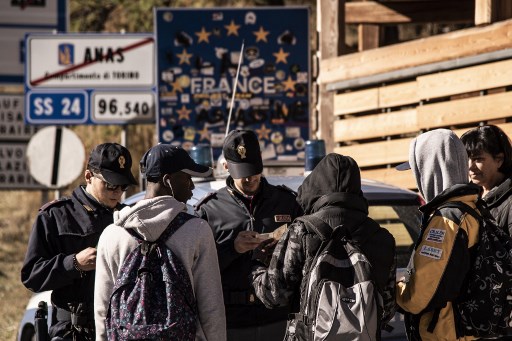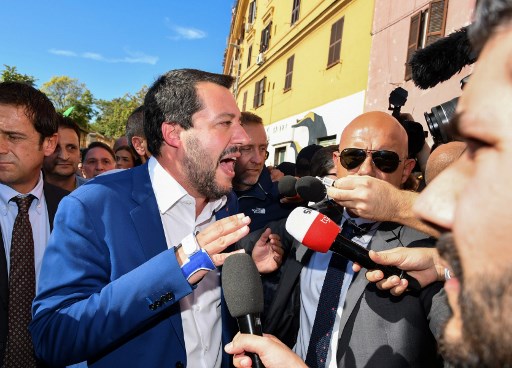
ROME, Italy (AFP) — The Italian Senate on Wednesday cleared the way for far-right leader Matteo Salvini’s tough anti-migrant and security decree to become law following a confidence vote.
The populist government of Salvini’s League and Luigi Di Maio’s anti-establishment Five Star Movement (M5S) won the vote with 163 senators for, 59 against and 19 abstentions, including five M5S members opposed to the stringent decree.
The lower house of parliament now has until the end of November to approve the decree, which the coalition first put forward in September and makes it easier to expel migrants and strip them of Italian citizenship.
“Salvini decree, an historic day,” Salvini tweeted after the Senate vote.

The government opted for a confidence vote to get the decree through the senate after M5S members tabled a slew of amendments. It should have no problem passing the lower house given the coalition’s majority.
The decree seeks to radically reduce the number of migrants receiving “humanitarian protection” — a lower level of asylum status that is based on Italian rather than international law — that was awarded to 25 percent of asylum seekers last year.
It will now be awarded based on six strict criteria, including whether there is an urgent medical need or if the applicant was the victim of a natural disaster, or if they had carried out “heroic acts” in Italy.
Of the 81,500 decisions handed down by Italian authorities in 2017, eight percent were granted asylum, eight percent subsidiary protection and a quarter humanitarian protection.
The remainder were rejected. If appeals fail, they face the prospect of being classed as economic migrants who must return home.
Those seeking refugee status will also now have their requests suspended if they are considered “socially dangerous or convicted in the first instance” of crimes, while their appeals are ongoing.
They will in future be housed in bigger reception centres, while only minors and those with recognised refugee status will be housed in different parts of the country in order to facilitate integration.
There are currently around 146,000 migrants held in reception centres, down from 183,000 at the end of 2017.
The Italian mayors’ association has railed against the change, saying that having hundreds of unemployed migrants in reception centres can have a negative impact on small communities.
The new law also lets local police have Taser stun guns and makes it easier to evict squatters by getting rid of the obligation of finding provisional housing for the most vulnerable.
One of the most controversial measures in the bill provides for stripping immigrants of their Italian nationality if they are convicted of “terrorism”.
Salvini, who is also deputy prime minister, has taken a hardline on immigration since the coalition came to power in June, refusing to allow several ships carrying migrants rescued in the Mediterranean to dock at Italian ports.
© Agence France-Presse







